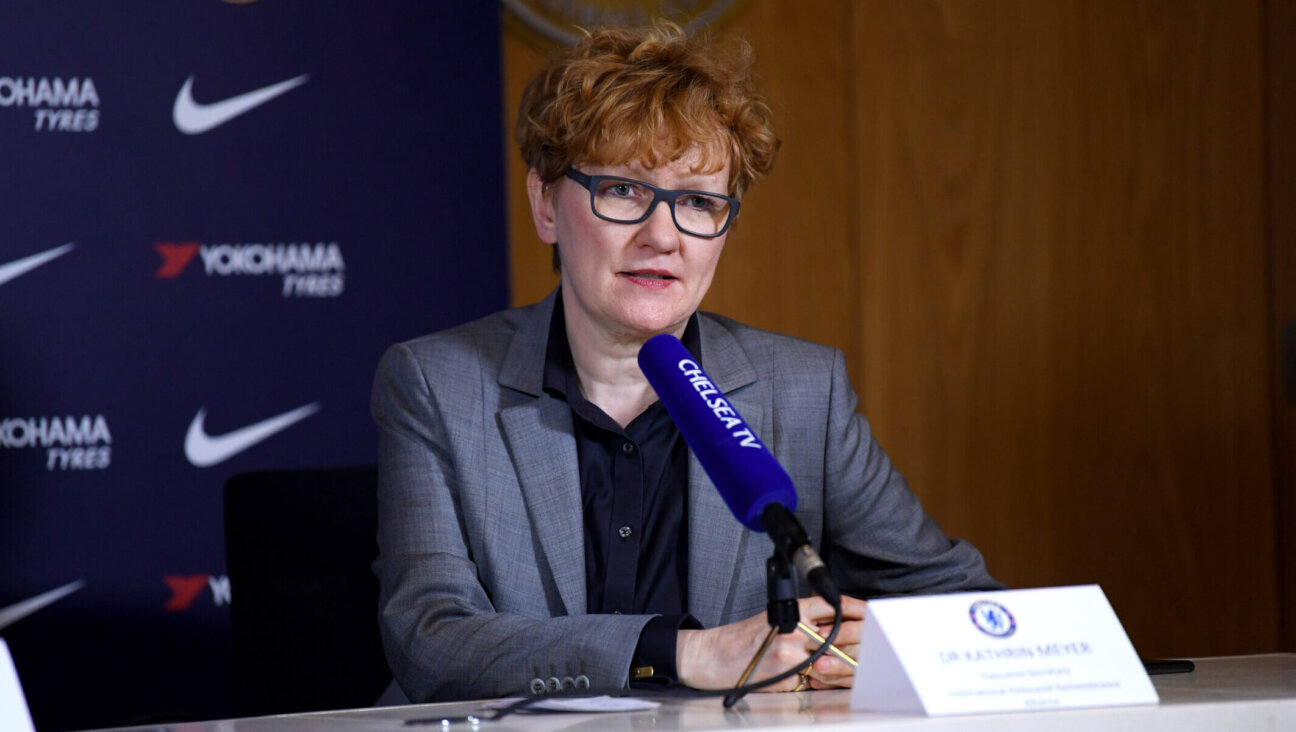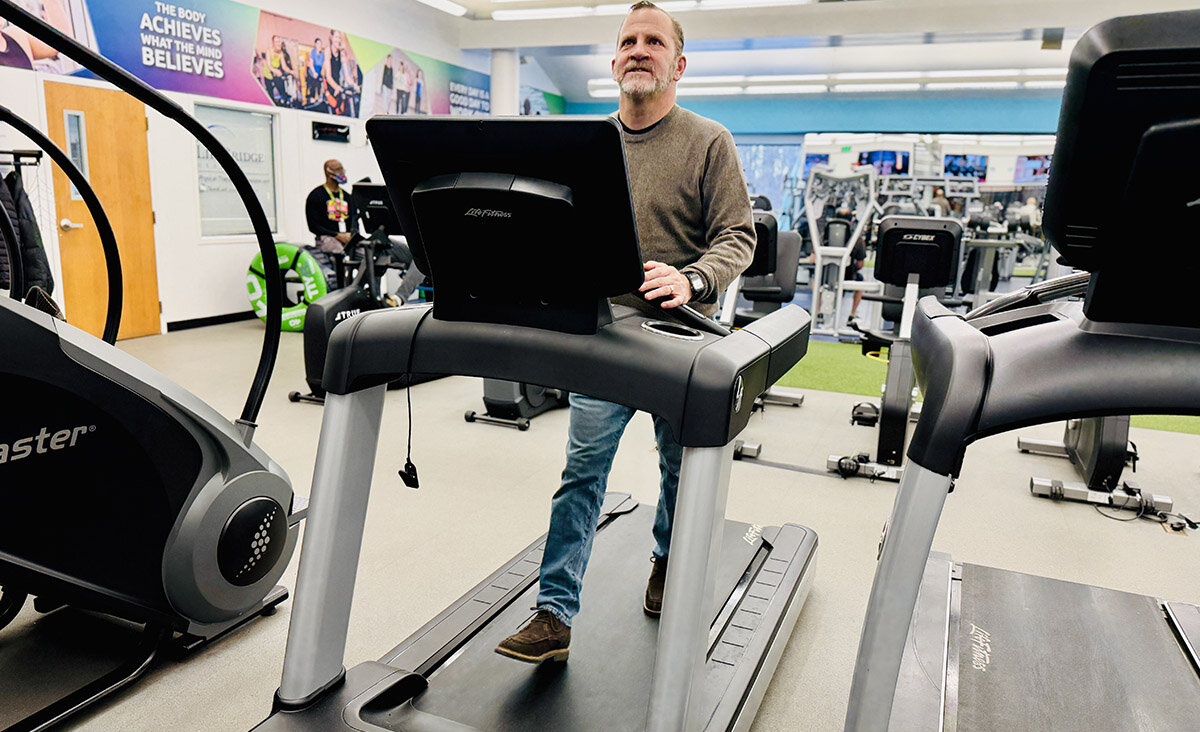Starting a Revolution in the National Religious Party
Some women just won’t take no for an answer.
After Gila Finkelstein helped to broaden Israel’s National Religious Party base as a candidate in the 1999 parliamentary elections, she thought she would gain a seat representing the party in the Knesset. But party leaders — notably Israel’s former Sephardic chief rabbi Mordechai Eliyahu, considered the National Religious Party’s spiritual mentor — refused to endorse a female candidate. As a result, Finkelstein was placed too low on the party roster to gain a seat.
But she did not give up. When new elections were called in late 2002, Finkelstein, a fast-talking, former high school principal who speaks with determined conviction and urgency, picked up the phone and made an appointment to see Eliyahu in his office.
This time around, Eliyahu would bless her candidacy. And even though he later pulled his support when he realized his own handpicked candidates would fall short, his initial backing helped Finkelstein capture the fifth and final spot on the roster, becoming the first woman to represent the National Religious Party in the Knesset since Sarah Stern-Katan in the early 1980s.
“It’s a kind of revolution,” Finkelstein, with a wide grin on her face, told the Forward on a recent visit to New York City.
Seven months into her term, Finkelstein has taken her party — traditionally hawkish, pro-settlement and religiously conservative — in a new direction, introducing a slew of legislative initiatives concerning welfare, women’s rights and education.
Finkelstein said that she is frustrated by a political climate that focuses on the territories and the military to the exclusion of pressing domestic considerations. As a lifelong educator — first as an English teacher and then as principal for 32 years at the Zeitlin High School, a Modern Orthodox institution in Tel Aviv — Finkelstein is keenly aware of the importance of addressing the needs of young and impoverished people at home.
“The cake is not divided the right way,” Finkelstein said of recent budget cuts that have disproportionately affected poor and middle-class Israelis. “We have to help the poor. This should be our most important goal.”
Finkelstein, 53, said that her focus on education was handed down from her parents, both of whom were teachers. Her father, who also served as a principal in a Modern Orthodox high school, pushed Finkelstein to “teach the poor people who have no money,” she recalled, “because they are going to appreciate what you do for them.”
Finkelstein is also pushing for equality for women in areas of divorce. Divorce, like other family matters, is controlled by religious courts in Israel, and women’s rights activists say the system puts women at a disadvantage. Cases of agunot — “chained women” whose husbands refuse them a religious divorce — can be held up for years. “I know all the agunot, women who don’t get the divorce [even after] more than 10 years, miserable women. It shouldn’t go on this way,” she said emphatically.
Finkelstein wants to shorten the proceedings for agunot to a maximum two-year period. Stiffer solitary confinement penalties (known as tzinuk, in which the husband is held in a small underground room for a period of five days) and heavier tax levies could spur unyielding men to grant their wives divorces, Finkelstein said.
“They don’t want to act against Halacha,” Finkelstein said, referring to rabbinic law. “They don’t want to act against the Torah because in the Torah it says a person who gives a divorce must do so out of free will.”
But Halacha is not static and changes according as facts evolve through time, she said.
“I can tell the Halacha is developing according to my history, my personal history,” Finkelstein said. “I’m going to stand at the head of this committee together with other women to follow the cases of these poor, miserable women and to make sure that they are okay, that they’re not being neglected.”
If Finkelstein’s agenda meets success, it could push the National Religious Party to adopt more lenient, Modern Orthodox values that might attract secular Israelis. Observers question whether the party is ready to throw its full support behind Finkelstein’s progressive moves, but if determination and conviction are indicators, she is on her way to a glorious political career.
Finkelstein noted that the parents at Zeitlin have affectionately tagged her “the iron lady” because of her passionate commitment to the children in her classrooms: “I never give up on any problem.”
Finkelstein said she sees Israeli society shifting. Increasingly, Orthodox women are being granted the right to read and learn Torah, she said excitedly. Indeed, some observers believe Finkelstein’s election is itself an important development that will give much-needed attention to women’s and social issues.
“Only 15% of Knesset members are women, so any woman’s election is significant,” said Shelly Klein, director of advocacy at Hadassah. “But when it comes from a conservative party, it shows that women’s leadership is becoming the norm.”
Finkelstein and her husband, Yehuda, an accountant, have three grown children. They live in Tel Aviv, the only Orthodox family in a neighborhood of secular Israelis.
“I’m happy we’re the only Orthodox people. I don’t like living in a family where you only have Orthodox people because it’s like living in exile,” said Finkelstein, offhandedly comparing some Orthodox communities to ghettos.
“We invite people to come eat with us throughout Saturday so they feel the atmosphere of shabbes,” she said. “They think Orthodox people are crazy people. But the minute they come for shabbat, they change their whole idea about Orthodox people. They see the family sitting around, getting close to each other, telling stories about the week, and they want to be like you, and they want to be close to you.”
Modern Orthodoxy is relatively popular in Israel, representing approximately 10% of the total population. It is among religious Israelis who reach out to their secular neighbors that some observers and politicians see a promising future for the National Religious Party.
“This is the purpose,” Finkelstein said of her attempt to reach out to her neighbors, “to pick up the flag of unity. Because if we can become united, we can solve many problems. When we have arguments, we can’t solve anything.”
A message from our Publisher & CEO Rachel Fishman Feddersen

I hope you appreciated this article. Before you go, I’d like to ask you to please support the Forward’s award-winning, nonprofit journalism so that we can be prepared for whatever news 2025 brings.
At a time when other newsrooms are closing or cutting back, the Forward has removed its paywall and invested additional resources to report on the ground from Israel and around the U.S. on the impact of the war, rising antisemitism and polarized discourse.
Readers like you make it all possible. Support our work by becoming a Forward Member and connect with our journalism and your community.
— Rachel Fishman Feddersen, Publisher and CEO























